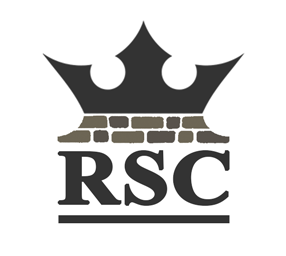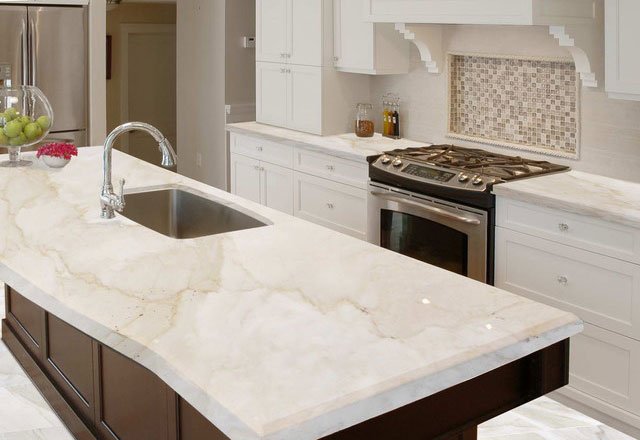Last Updated on May 31, 2019 by Royal Stone Care
If you have marble tiling or countertops, you’ll love this elegant natural stone and the way the veining in it creates an impression of movement.
But, especially in the kitchen, it’s understandable if you have concerns over this porous material’s susceptibility to etching and staining.
Here are some hints to help.
Beware of etching
One thing to understand is how etching can affect your surface. This is different from staining, and happens when something acidic like lemon juice or tomato ketchup is spilt and not mopped up. The acid eats away at the stone’s calcium carbonate, leaving dull spots and rings on the marble as permanent marks. Depending on the lighting that hits the surface, these can be very visible.
So vinegar, bleach and other acids should be kept away from the stone – and don’t use any harsh or abrasive cleaning products.
Wiping surfaces with warm soapy water and a gentle cloth or sponge will clean your countertop well, but any etching or stains that have permeated the surface will linger.
And if your stone has a glossy, polished surface, markings will show up more. (The alternative is a satiny honed surface which has less light reflection and is popular for heavily trafficked areas like floors.)
To tackle etching, dampen the surface and sprinkle on some marble polishing powder. Work this into the stone with a moist cloth and buff until the mark has gone.
You may need a professional to remove the sealer and marking.
Seal it up
A spray sealant applied monthly reduced stains and itching – it buys you some time by delaying how long it takes for liquid to penetrate the surface and acts as a barrier.
However, with the best will in the world, stains happen. Here’s what to do:
- Oil-based stains (like cooking oil and grease) can be cleaned with a gentle cleaner.
- For organic stains (tea, food, fruit, coffee) use a few drops of ammonia and 12% hydrogen peroxide.
- Smoke can be removed with specialist products or ask for professional advice.
- Water spots and rings can be carefully buffed with dry steel wool.
- Paint stains, if they are small, can be removed with a lacquer thinning product, or use a razor blade to scrape off carefully.
- Rust can be removed with a poultice but these are hard stains to get rid of, and maybe permanent.
Looking for marble cleaning in London?
If all the above sounds complicated, and you’re concerned about damaging your marble countertops, we don’t blame you. Some aspects of marble restoration and marble polishing are definitely best left to the professionals.
At Royal Stone Care, we offer marble cleaning in London and the surrounding areas. We work to the highest environmental standards, and have many years’ experience across a wide range of premises. With our unique diamond pads, we can remove all marks promptly and safely, giving you peace of mind – and one less thing to worry about.

